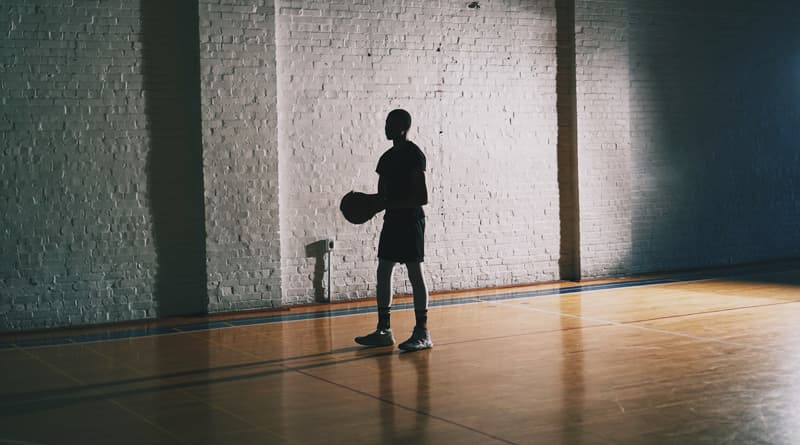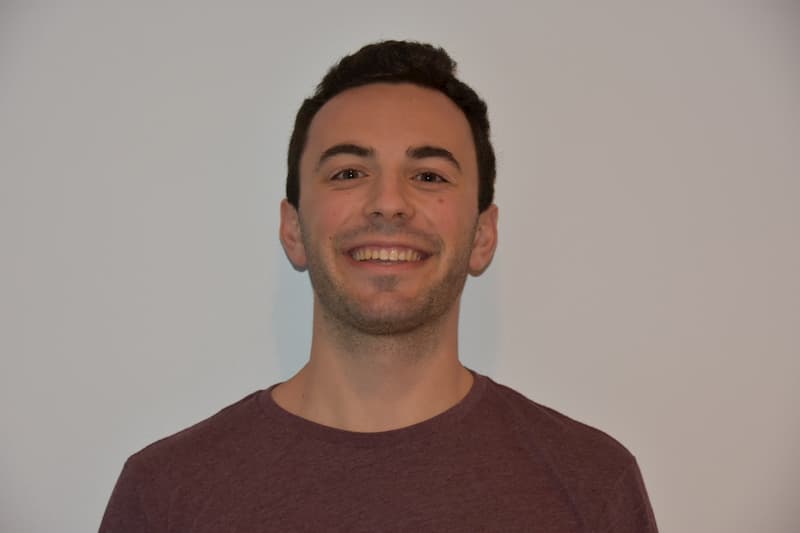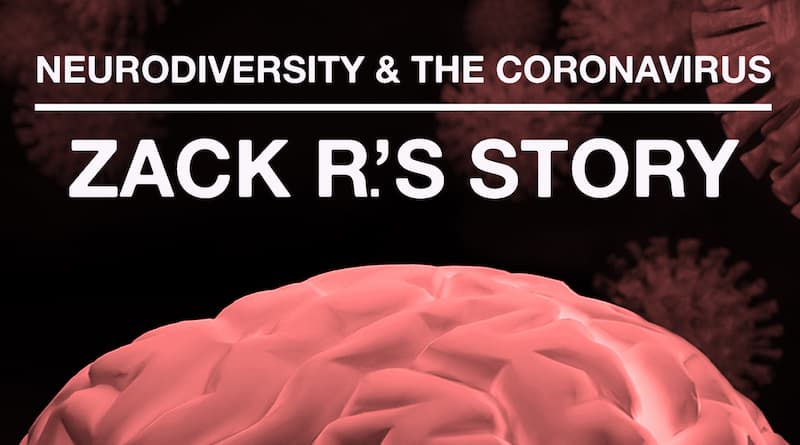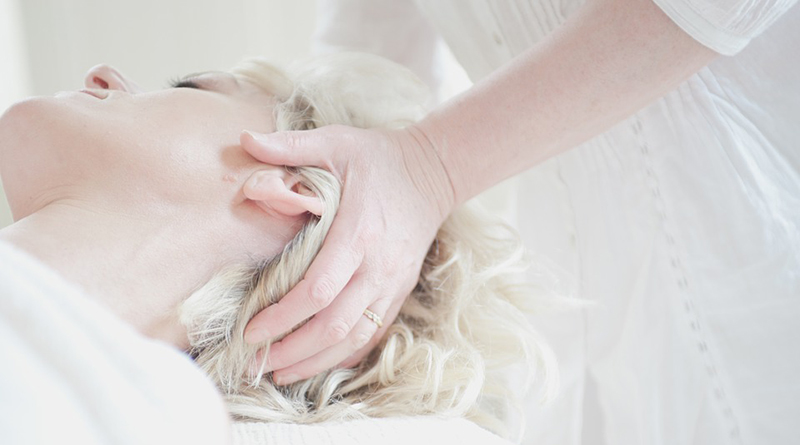
The Student-Athlete: Mental Health During COVID-19
By Jonathan Spaan
COVID-19’s Effect on Mental Health
Currently we are living in unprecedented times. We have been forced to continuously adapt to our new world as various stressors continuously enter our lives. The health of our family and friends has become a day to day subject, there is fear over our finances, and social distancing has resulted in far less social interaction than we are used to. This is no small burden, and these new conflicts have taken a mental and emotional toll on individuals across the world.
The CDC put out a report stating that symptoms of anxiety increased by 3-fold and depression by 4-fold during April to June 2020 compared to the same time period in 2019 (1). Further, forty percent of U.S. adults reported struggling with mental health or substance abuse during this time (1). The CDC’s article also states that the effects of COVID-19 on mental health has not affected all groups equally, as individuals who are 18 to 24 years old have been impacted disproportionately more than all other age groups (1).
Dealing with Loss of Routines and Plans
Significantly, the 18 to 24-year-old age group makes up the vast majority of college-aged students. When the pandemic forced a nationwide lockdown in mid-March, college students unexpectedly saw their school years come to an end. But even though they had to leave campus, school didn’t stop. Working from home, they had to finish their coursework, some with limited resources, only adding to the stress that could come from a normal school year. Students who were used to living with friends and spending their weekends at school wide events were suddenly in isolation.
This struggle was only compounded for college athletes as they watched their seasons abruptly end. Including seniors who were left to wonder if they had already played the last game of their college careers. As the older brother to two senior college athletes I saw first-hand the mental and emotional toll this had on them. They missed their friends, walking to class, going to practice, and multiple other nuances that surround the everyday college student-athlete.
COVID-19 and the Student-Athlete
As a student-athlete you dedicate hours on end into perfecting your craft just to make it to the college level. It can be extremely difficult to deal with your season ending, let alone in a fashion that is completely out of your control. With this in mind, the NCAA put together a survey to assess how student-athletes across the country were coping with the cancellations due to COVID-19 and the effects of the pandemic on their physical and mental health.
Overall, 37,658 student-athletes ranging across all divisions and conferences participated in the survey (2). Results indicated that over one third of student-athletes experienced sleep difficulties, over one in four individuals felt very lonely, over one in five felt overwhelming anxiety, and one in twelve felt so depressed that it was difficult to function (2). Moreover, college seniors stated feeling a daily sense of loss at a rate of 1.5 times higher than underclassmen. In total, these mental health findings ranged from 150-250% higher than those reported by student-athletes during the typical year (2). These results highlight the mental health concerns that parallel college athletics and how these issues have become exacerbated during the COVID-19 pandemic.
Mental Health in Professional Sports
However, struggles with mental health are not constrained to college athletics. Within the past year numerous professional athletes including DeMar DeRozan of the NBA’s San Antonio Spurs and Kevin Love of the Cleveland Cavaliers have opened up about their struggles with anxiety and depression.
In particular, one individual stands out. In September, Dak Prescott, the quarterback of the Dallas Cowboys, opened up about losing his brother to suicide, and coping with the anxiety and depression that accompanied both the loss of his brother and the disruptions caused by COVID-19.
Dak’s courage to share his story immediately made the headlines of many networks. However, comments by FOX sports analyst, Skip Bayless, suggesting Dak’s discussion of his anxiety and depression was a sign of weakness, was a cause for pause. These comments are indicative of how far we as a community still have to go in terms of ending the stigma against talking about mental health. In fact, Dak’s comments show anything but weakness, they show courage and strength.
Moving Forward
On the other hand, the immediate overpowering criticism of Bayless’ comments, and the support of Prescott, do in fact show the progress we have made as a society on this topic. I commend athletes like Dak, DeMar, and Kevin for opening up and sharing their experiences. Their stories save lives and let others know that they are not alone.
As a former Division 1 college athlete, I understand that the locker room can be an extremely difficult place to discuss mental health. There is an ingrained stigma that athletes should be “tough”, and any vulnerability is a sign of weakness. This is far from the truth. Studies, like the one done by the NCAA highlight the importance of these conversations in the locker room setting. Now more than ever.
It is essential for colleges and universities to provide their student-athletes with sports psychologists and other mental health resources. Then we can continue to work towards an open conversation regarding depression and anxiety. As individuals continue to speak up and open the discussion, we can end the stigma.
For more information on anxiety, depression, and how you can help, visit the Different Brains website at differentbrains.org and check out the resources tabs.
If you need help, ask. If someone asks you for help, listen. Together we can end the stigma.
References
- Czeisler, Mark E, et al. “Mental Health, Substance Use, and Suicidal Ideation During the COVID-19 Pandemic – United States, June 24–30, 2020.”Centers for Disease Control and Prevention, Centers for Disease Control and Prevention, 13 Aug. 2020, www.cdc.gov/mmwr/volumes/69/wr/mm6932a1.htm.
- “NCAA Student-Athlete COVID-19 Well-Being Study.”org – The Official Site of the NCAA, 22 May 2020, www.ncaa.org/about/resources/research/ncaa-student-athlete-covid-19-well-being-study.

My name is Jonathan Spaan. I went to Hobart and William Smith Colleges in Geneva, New York where I was a Biology major and member of the Division 1 Lacrosse Team. I just completed my master’s degree in Medical Sciences from Boston University School of Medicine and am currently working at Boston Children’s Hospital conducting research in the Inflammatory Bowel Disease Center.




